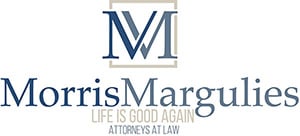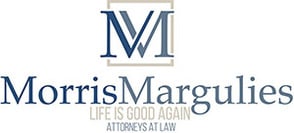Student Loans: What To Do If You Cannot Repay The Loans

Many people finance their education by getting student loans. Usually, the student loan lender requires that you start repaying the loan within six months of obtaining your degree. If at any point during the repayment period you realize that you will be unable to repay the loan due to short term illness, unemployment, disability or other reason, you should immediately contact the student loan lender and ask for a deferment or a forbearance agreement. Under some circumstances, such as a permanent medical disability, you may qualify to have the entire loan canceled.
To determine if you qualify for loan cancellation, you should contact the student loan lender or you can contact the Department of Education’s Debt Collection Services Office at 800-621-3115. If you can prove that repaying the loan would be an undue hardship for you and your dependents, you can file for bankruptcy and seek court authority to discharge the loan under 11 U.S.C. §523(a)(8). If you were enrolled in a school that closed while you were still a student and were not able to complete your studies, you may be eligible to have the loans canceled. Again you should contact your student loan lender or the Department of Education’s Debt Collections Services Office at the number indicated above. To confirm that your school was officially closed you can contact the following: In Maryland: 410-974-2971; In the District of Columbia: 202-727-3511.
If you have several student loans at various interest rates of repayment you may want to consider consolidating the loans into one loan. The following is a list of lenders who offer student loan consolidation:
Federal Direct Consolidation Loan Information Center
www.ed.gov/office/ope/directloan
800-848-0982
Sallie Mae
www.salliemae.com
800-524-9100
Department of Health and Human Services (HEAL loans only)
301-443-1540
Citibank
www.citibank.com/student
800-967-2400
USA Group
www.usagroup.com
800-448-3533
There are several negative consequences that may happen to you once you default on your student loan. First, the student loan lender will report the default to the credit reporting agencies and it will appear on your credit report. This will immediately lower your credit rating. You will also not be able to obtain any new student loans until you are out of default status. You will also not be eligible for a loan deferment until you are out of default status. Finally, collection actions may be instituted against you.
To get out of default status you will generally need to make monthly payments to the student loan lender for 12 consecutive months. You should call the lender and work out an agreement setting the amount of the monthly payment. Factors taken into consideration in determining the monthly payment include your net monthly income, your monthly expenses, such as housing, food, utilities, car payments, dependant care expenses and other loans.
Student loan lenders have several options to collect unpaid student loans. One option is to have the IRS intercept your income tax refund every year until the loan is paid. It also has the option of garnishing 10% of your wages. Unlike other creditors, the student loan lender does not have to file a lawsuit against you before it garnishes your wages. However, it could also sue you for the money. In order to repay the loan once it is in default, not only will you have to repay the principal plus interest, you may also be charged a collection fee of 25% of the principal plus additional penalty charges. You can contact the Department of Education’s Ombudsman at 877-557-2575 for help with a defaulted loan.
In summary, do not ignore your student loans. If you cannot repay the loans apply for a deferment or a forbearance agreement. If you do not repay the loans the amount you will eventually need to repay will increase dramatically due to collection fees, penalties and other collection costs. Finally, contact the parties listed above for help with your student loans.
There are several web sites on defaults on student loans produced by the government, you may be interested in viewing them. They are:
- www.ed.gov/offices/osfap/dcs/index.html
- www.ed.gov/offices/osfap/default.html
- www.salliemae.com

